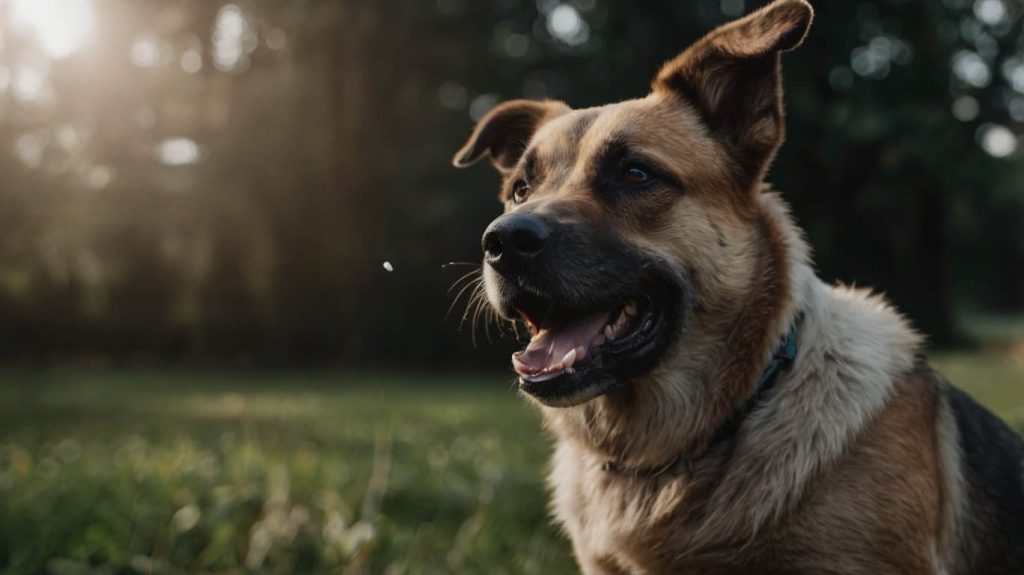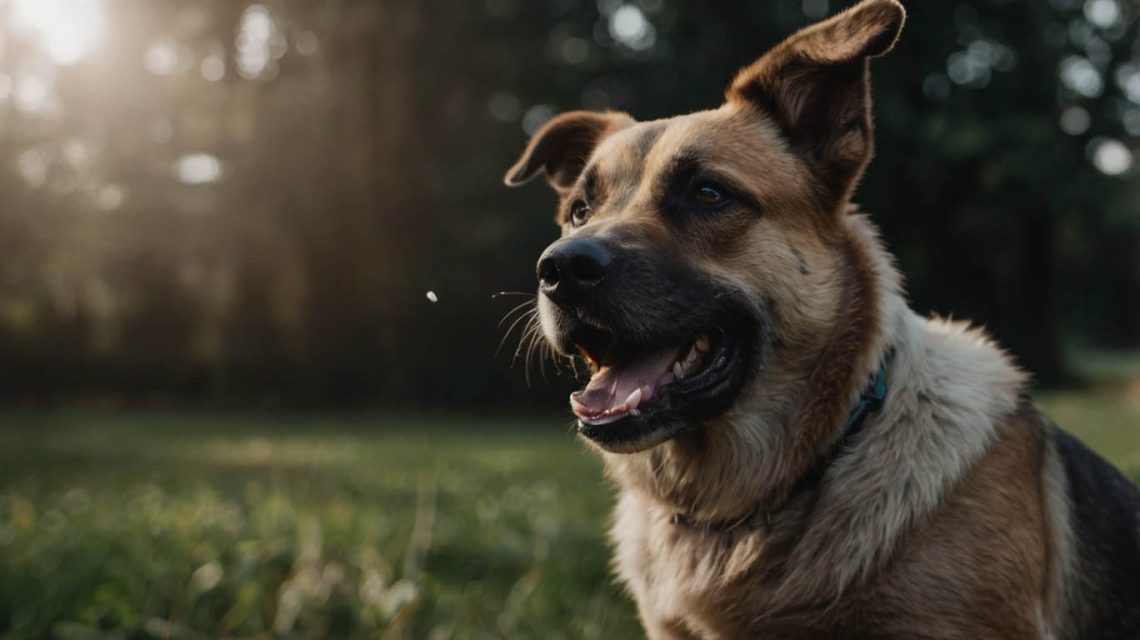What Causes Bad Breath in Dogs? A Complete Guide to a Healthier Mouth
You lean in for a loving cuddle with your dog, and then it hits you—an overwhelming wave of unpleasant odor from their mouth. The story is all too common, and it often leads owners to wonder, “what causes bad breath in dogs?” While it’s easy to joke about “doggy breath,” the truth is that a consistently foul odor is not normal. In fact, it’s often your dog’s first and most obvious cry for help, signaling that something is wrong inside their mouth or even deeper within their body.
This comprehensive guide will walk you through the entire journey of decoding your dog’s bad breath (a condition medically known as halitosis). First, we will uncover the number one culprit that affects the vast majority of adult dogs. Then, we will explore the more serious underlying health conditions that bad breath can signal. Finally, we will provide a complete action plan for treating the problem and preventing it in the future. Consequently, you will be empowered to move beyond simply masking the smell and start addressing the root cause for a healthier, happier companion.
The #1 Culprit: What Causes Bad Breath in Dogs Most Often
First and foremost, if you’re trying to figure out what causes bad breath in dogs, the answer in over 80% of cases is the same: periodontal disease. This is not just a cosmetic issue; it’s a progressive, painful infection of the tissues surrounding the teeth.

The Story of Plaque and Tartar: How Bad Breath Develops
The narrative of periodontal disease begins simply.
- Plaque Formation: Just like in humans, bacteria in your dog’s mouth constantly form a sticky, colorless film on the teeth called plaque.
- Tartar Buildup: If you do not remove the plaque through brushing, it hardens into tartar (or calculus) within 24-48 hours. Tartar has a rough surface, which unfortunately attracts even more plaque.
- Gingivitis: The tartar buildup at and below the gum line causes inflammation of the gums, known as gingivitis. You might notice red, swollen gums that bleed easily. At this stage, the condition is still reversible with a professional cleaning.
- Periodontitis: If left untreated, gingivitis progresses to periodontitis. The infection goes deeper, destroying the tissues and bone that support the teeth. This is the stage that causes severe, foul breath, significant pain, and eventual tooth loss.
The odor you smell is the result of the bacteria feasting on debris in the mouth and releasing volatile sulfur compounds. Therefore, addressing this buildup is the primary step in treating what causes bad breath in dogs.
When Bad Breath Signals a Deeper Problem
While dental disease is the most common cause, sometimes a specific type of odor can be a clue to a more serious, systemic health issue. A veterinary check-up is crucial if you notice any of these distinct smells.
What Causes Bad Breath in Dogs to Smell Sweet or Fruity?
A noticeably sweet or fruity odor can be a sign of diabetes. This happens when the body can’t use sugar for energy properly and starts breaking down fat instead, producing ketones that have a distinct smell. If you notice this smell, especially in combination with increased drinking and urination, see your veterinarian immediately.
What Causes Bad Breath in Dogs to Smell Like Urine or Ammonia?
Breath that has a strong smell of urine or ammonia is a serious red flag for kidney disease. When the kidneys are failing, they can no longer effectively filter and eliminate waste products like urea from the bloodstream. This buildup of toxins can be excreted through the breath, causing the tell-tale odor.
What Causes Bad Breath in Dogs to be Unusually Foul or Rotten?
An exceptionally foul, “death-like” odor that is different from typical dental decay can sometimes indicate an oral tumor or advanced liver disease. Tumors can have areas of dying tissue that create a powerful odor. Similarly, if the liver is not functioning properly, it cannot filter toxins, which can manifest as extremely bad breath.

Other Potential Causes of Bad Breath in Dogs
- Dietary Habits: Sometimes, the cause is as simple as what your dog just ate. Certain dog foods, or a penchant for getting into the trash or eating feces (a condition called coprophagia), will understandably cause temporary bad breath.
- Something Stuck in the Mouth: A piece of a stick, a shard of a chew toy, or other foreign material can get lodged between the teeth or in the roof of the mouth. As this object decays and causes an infection, it will create a foul odor.
- Teething in Puppies: The process of teething can sometimes cause a specific, slightly metallic or sour smell as baby teeth fall out and adult teeth emerge.
Your Action Plan: How to Treat and Prevent Bad Breath in Dogs
Now that you understand the potential causes, here is your step-by-step plan for taking action.
Step 1: The Essential Veterinary Examination
This is your non-negotiable first step. Your veterinarian is the only one who can accurately diagnose what causes bad breath in dogs. They will perform a thorough oral exam and may recommend bloodwork to rule out the systemic diseases mentioned above.
Step 2: The Professional Dental Cleaning
If periodontal disease is the culprit, the only way to remove the existing tartar is with a professional dental cleaning (prophylaxis) performed under anesthesia. This process involves scaling the teeth above and below the gumline, polishing them, and taking dental X-rays to assess the health of the tooth roots.
Step 3: At-Home Dental Care (The Gold Standard of Prevention)
After a professional cleaning, your job is to prevent the tartar from coming back.
- Daily Brushing: This is the single most effective thing you can do. Using a dog-specific toothpaste and a soft-bristled brush to remove plaque daily will dramatically slow the progression of dental disease.
- Dental Chews, Toys, and Wipes: These are excellent supplements to brushing. Look for products that have the Veterinary Oral Health Council (VOHC) Seal of Acceptance. This seal certifies that a product has been proven to effectively reduce plaque or tartar.
- Water Additives and Sprays: While not a substitute for brushing, these products can help reduce the bacterial load in your dog’s mouth.
Conclusion: A Breath of Fresh Air for Your Dog’s Health
Figuring out what causes bad breath in dogs is the first step on a journey toward better overall health for your companion. That foul odor is a powerful indicator of their oral and systemic well-being. By partnering with your veterinarian, investing in professional dental care when needed, and committing to a consistent at-home oral hygiene routine, you can do more than just get rid of the smell. You can eliminate pain, prevent serious disease, and add healthy, happy years to your dog’s life.


